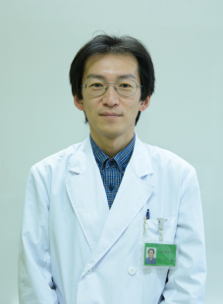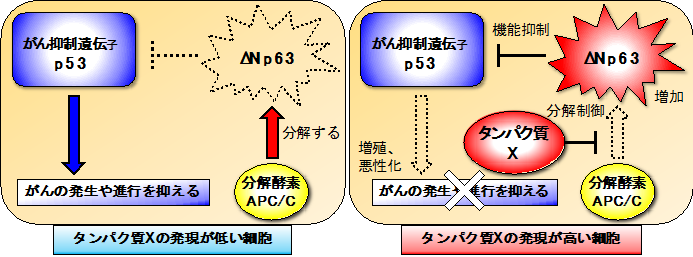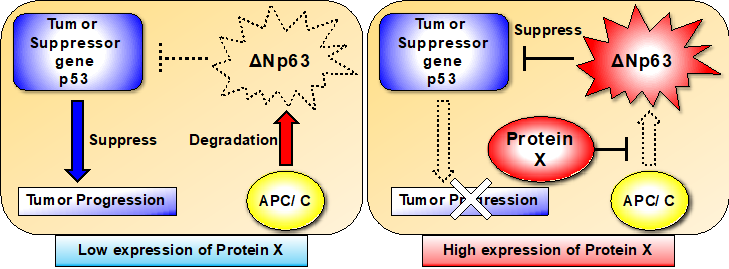難治療性がんにおけるバイオマーカーと分子標的治療の探索
群馬大学大学院医学系研究科
講師
六代 範

有効な分子標的治療がない難治療性がんにおいては、新規創薬標的となりうるバイオマーカーや分子標的遺伝子を同定し、有効な分子標的治療の開発を進めるために、トランスレーショナル研究を進めることが不可欠です。我々は難治療性がんである扁平上皮がんの診断マーカーの一つであるp63遺伝子の制御を介してがんの発生や進行に関与する新規タンパク質の詳細な仕組みを解明し、がん分子標的治療の開発に結びつけることを目的としています。本研究は、国立研究開発法人日本医療研究開発機構の支援を受けており、新規創薬遺伝子を標的としたがん分子標的治療薬の創薬プロセス(標的検証、スクリーニング、非臨床試験)を進めており、アカデミア発創薬シーズによるオールジャパン体制でのアカデミア創薬?分子標的治療薬として社会への貢献が期待されます。
?
Exploration for biomarkers and molecular target therapy in refractory cancers
Susumu Rokudai
Lecturer, Graduate School of Medicine, Gunma University

Despite there have been significant advances in the treatment of Squamous Cell Carcinomas (SCCs), such as immuno-checkpoint inhibitors, therapeutic advances in the treatment of SCC have lagged behind those for adenocarcinoma (AC). Therefore, the capacity to distinguish SCC is particularly important for the effective use of novel targeted therapies to treat patients with these NSCLC subtypes. Further improvements in prognosis are dependent upon the identification of SCC genomic alterations and specific molecules that can be used as therapeutic biomarkers and/or targets. ΔNp63 is a diagnostic marker highly specific for lung SCC, but the regulation of the protein stability and the pathologic relevance of p63 in tumorigenesis remains unclear. Our goal is to gain a more comprehensive and mechanistic view of gene alterations and post-translational regulation of p63 in SCCs. Using the small molecules, manipulating protein-protein interactions with p63 or p53 mutant might an effort to disrupt the interaction and the expression levels, and might be of some therapeutic values in treating retractable cancers.


